Early Days
Sensi Seeds was founded in 1985 by Dutch cultivator and entrepreneur Ben Dronkers.
Born on Dec 25, 1949, Dronkers was raised in Rotterdam, where he first gained an appreciation for horticulture while spending time with his mother in their garden.
In 1963, at the age of 15, he began working as a boatswain’s boy (an assistant deck hand) for the Rotterdam-based Holland-America merchant shipping line. While visiting ports of call in various countries, he sought exotic fabrics for a clothing company he hoped to start. Three years later, Dronkers had already married and had his first son, Alan. In 1968, he and his wife did indeed open their own clothing boutique… but by then, his passion had already started shifting towards another pursuit: Cannabis.
Introduction to Cannabis
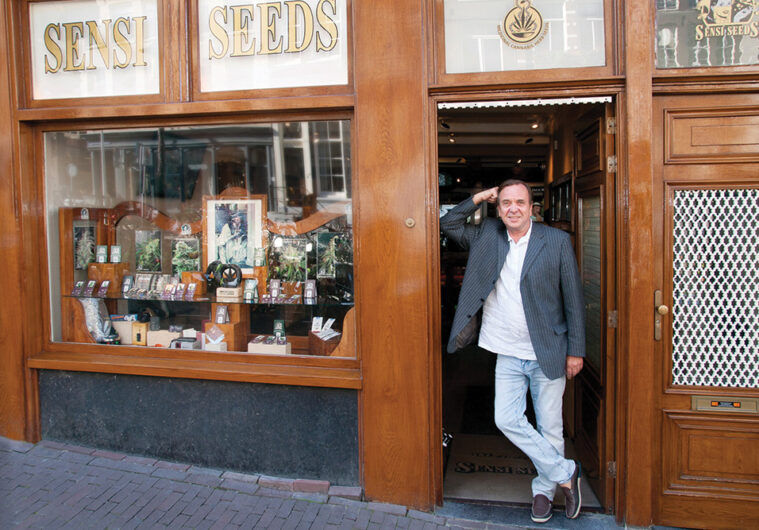
Dronkers smoked his first joint (tobacco and hashish, as was typical for Europe at the time) at 17 while walking on a pedestrian bridge across the Nieuwe Maas River with a friend. Soon, instead of just collecting hemp fabrics on his voyages, he was also collecting seeds. And since there was nowhere to get hash or weed there in Rotterdam, he and his friend began riding down to Amsterdam.
Like in America, the late ’60s saw a counterculture beginning to emerge in the Netherlands. In June 1970, around a year after Woodstock, Rotterdam had a psychedelic rock festival of its own. Billed as “Europe’s answer to Woodstock,” the Holland Pop Festival — aka “Stamping Ground” and the “Kralingen Music Festival” featured a stellar lineup, including Santana, Jefferson Airplane and Pink Floyd. It was this concert that many cite as the birthplace of the Dutch’s famous tolerance towards Cannabis use, or gedoogbeleid – and Dronkers was right at the heart of it.
“Everyone knew that at the festival a lot of people would be smoking, so the police said they would take it easy, that there would be no arrests because they were afraid there would be riots,” he told High Times in 1996. “So we made a ‘Hash and Marijuana Here’ sign and sat under it and sold it.”
Cultivating the Dream
By 1975, Dronkers had begun growing his own Cannabis in makeshift greenhouses using seeds he’d acquired abroad or culled from some of the better weed he’d come across.
“Back then we were experimenting with the first indoor grow techniques, using cool-tubes shaped as a tipi to try and get some buds. The weed was not good, but it worked,” he once explained. “For us, it felt amazing that we could just put some seeds in the ground, water it, and grow your own weed.”
Dronkers began setting up larger-scale grows, then tried to sell his harvests to coffeeshops. But ironically, since the Dutch market wasn’t used to seeing kind bud, he initially encountered resistance.
“The first two to three years that I grew Cannabis in greenhouses, no one wanted to buy it,” he explains. “The Dutch had only seen brown Thai and African weed, which was pressed into blocks and dried out. So when they saw green buds, they didn’t know what to do with it. They even called it ‘spinach.’”
Eventually, though, he convinced a few shops to take a chance on his “spinach,” and they couldn’t keep it on the shelves, largely thanks to American tourists.
“[People] were getting so stoned that they would literally fall off their stools!”
Building the Bank
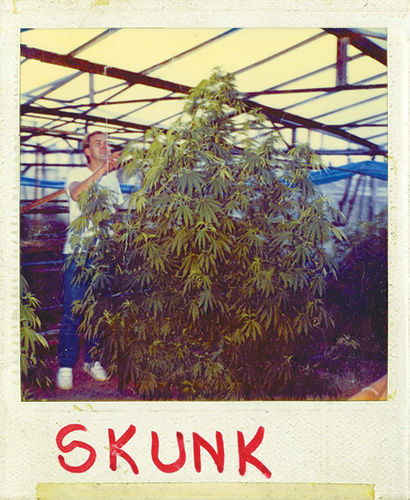
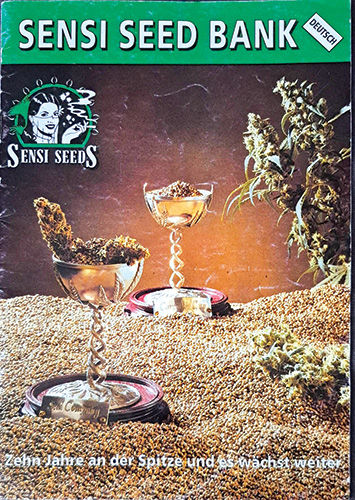
From 1978 to 1984, Dronkers spent much time traveling to various regions along the infamous Hippie Trail (i.e., India, Pakistan, Afghanistan and Morocco), procuring quality hashish and landrace genetics.
Then, in the early to mid-1980s, Holland’s tolerance toward Cannabis began attracting some of America’s top pot pioneers who were eager to share their cultivation knowledge and genetics with Amsterdam’s burgeoning marijuana market. From grow gurus like Ed Rosenthal, Jorge Cervantes, “Seattle Greg” McAllister, and Sam the Skunk Man, Dronkers obtained now-classic strains like Skunk #1, Early Pearl, Original Haze and Northern Lights. Using these cultivars and those he’d curated from his travels, Dronkers began developing and stabilizing his own hybrids.
Sensi Smile
In addition to selling his weed to coffeeshops in Amsterdam, Dronkers also opened his own in his hometown in 1983. The first Cannabis cafe in Rotterdam, Sensi Smile, was originally just a clothing shop with a big pot leaf in the window from which they sold weed and hash.
Additional locations were later opened in Amsterdam, Groningen and other parts of Rotterdam. Unfortunately, raising his public profile like that also led to unwanted scrutiny from the law. And though Dutch authorities tolerated the sale and possession of small amounts of Cannabis, growing more than five plants was still considered illegal, so Dronkers’ large-scale grows inevitably led him to run afoul of the law. Luckily, though, penalties for Cannabis in Holland weren’t very harsh.
“Altogether, I’ve been arrested about 80 times in my life,” Dronkers confessed to HT. “I’ve been convicted about 15 times and jailed four or five times, but always for a short time. The longest period I’ve been in jail was six weeks.”
As the story goes, it was during one of these jail stays that Dronkers began researching the legal basis of Cannabis prohibition in Europe, the Opium Act (celebrating its centennial this year), and discovered a loophole of sorts: apparently, Cannabis seeds were exempt from the ban. After verifying this find with his lawyer, he decided to shift gears and sell seeds instead of weed. And thus, the Sensi Seed Club (aka Sensi Connoisseurs’ Club) was born.
Sensi Seeds
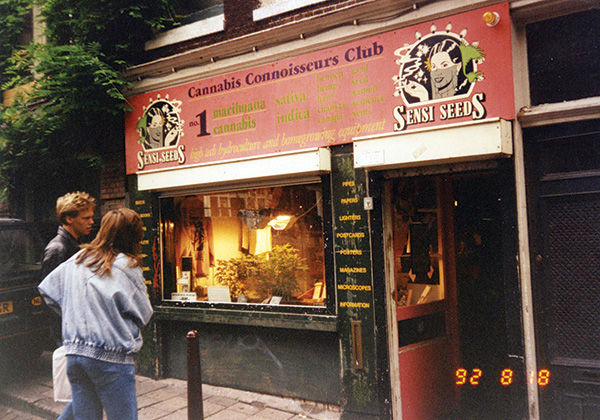
In 1985, Ben and his son Alan rented a corner storefront in Amsterdam’s infamous Red Light District and began selling their seeds. The shop was an immediate success, attracting aspiring home growers and pros worldwide.
Of course, Sensi wasn’t the only seed company operating out of Holland then: the Super Sativa Seed Club (SSSC), the Lowlands Seed Company, and The Seed Bank were also in the mix. Of these, The Seed Bank was the first and most successful, thanks to founder Nevil Schoenmakers’ bold move of selling to Americans via ads in High Times (see our March 2022 column). Unfortunately, that strategy backfired when he became the target of the Bush administration’s Operation Green Merchant sting in 1989.
In 1991, Schoenmakers was arrested in Australia and faced extradition to the U.S. During his incarceration, he struck a deal to sell his entire seed and plant stock — as well as his mansion known as the “Cannabis Castle” — to Dronkers. With the acquisition of Nevils’ Seed Bank, Sensi Seed Club became the Sensi Seed Bank… and with the dissolution of SSSC, Lowlands, and Cultivators Choice soon after, emerged as the largest seed company in the world.
The Cannabis Cup
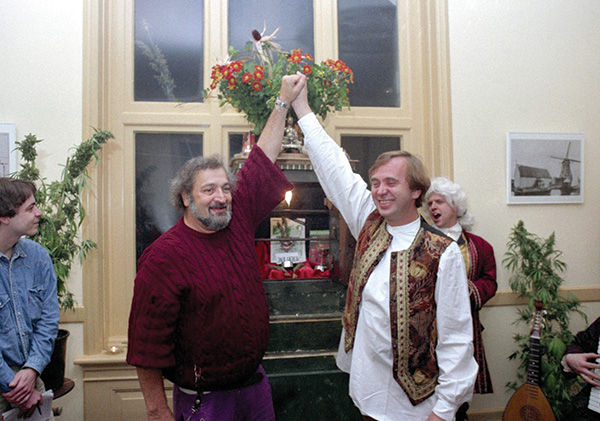
With a vast genetic library and no serious competition, Sensi Seeds began cranking out phenomenal new strains (e.g., Silver Haze, Black Domina, Sensi Skunk, Big Bud and Hindu Kush), some of which would go on to win awards at High Times’ newly-created (1988) Cannabis Cup competition — even sweeping the Seed Company category in 1993. But it was the 7th Annual Cup in 1994 that would prove to be the real game-changer for Sensi. That was the year Sensi first opened up the Cannabis Castle for tours and, during a special ceremony there, premiered what would become their most famous strain — one that bears the name of the weed world’s most legendary activist, Jack Herer. Allegedly a cross between Haze, Northern Lights, and Skunk, this sativa-dominant sensation ended up taking home the top prize that year and has since become one of the most popular “sativas” in the world.
After 2002, Sensi took a decade-long hiatus from participating in the Cannabis Cups. It wasn’t until 2013, at the 26th Annual Cup, that Dronkers finally decided to re-enter the competition, and High Times celebrated his return by inducting him into their Counterculture Hall of Fame.
Other Projects
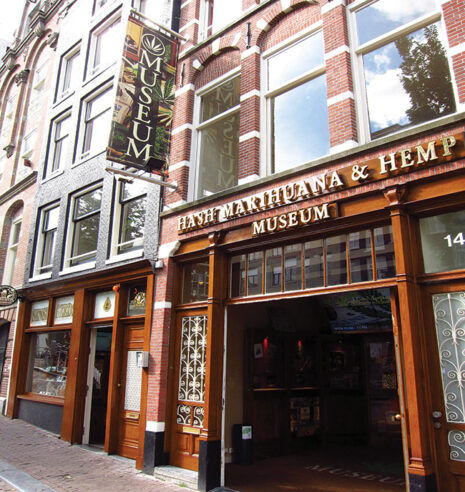
In addition to his seed company, Dronkers has spearheaded several other groundbreaking projects in the Cannabis space.
The same year he launched Sensi Seeds, Dronkers also opened the Cannabis Info Museum — the world’s first Cannabis museum — just a few blocks from his seed shop. With help from grow guru Ed Rosenthal, he curated an ongoing exhibit showcasing some of the countless Cannabis-related artifacts he’d collected on his travels. After an expansion in 2008, then a complete remodel in 2012, it transformed into the iconic Hash Marihuana & Hemp Museum we know today. A sister museum was opened in Barcelona mere weeks after the Amsterdam location’s reopening.
Next, in 1993, Dronkers founded HempFlax, a company that grows hemp in several European countries and processes it into fibers for textiles and plastic substitutes. It’s the largest CBD oil producer in Europe.
Then, in 2004, he created the Cannabis Culture Awards, an annual ceremony honoring individuals who’d taken an extraordinary stand on behalf of Cannabis, including Herer, Rosenthal, Dr. Lester Grinspoon, Todd McCormick, and Sir Richard Branson.
Accolades & Acquisitions
Now 74, Dronkers now lives in Malaysia in semi-retirement, passing the proverbial torch to his sons (and executive directors) Che Dronkers and Ravi Spaarenberg. Under their stewardship, Sensi has continued to thrive — now offering over 500 seed varieties, including feminized and auto-flowering versions of their classic cultivars. And at MJ Bizcon last December, Sensi announced that they would be merging with both Nor-Cal’s ILGM (I Love Growing Marijuana) and fellow Amsterdam icons Barney’s Farm Genetics, taking the new conglomerate public later this year. This would make it the world’s first publicly traded Cannabis seed company.
“This partnership strikes a balance between honoring the legacy market and shaping a brighter future for the Cannabis industry,” Dronkers said of the merger. “We are devoted to innovation, quality and preserving the seeds of this rich, diverse and extraordinary plant.”









